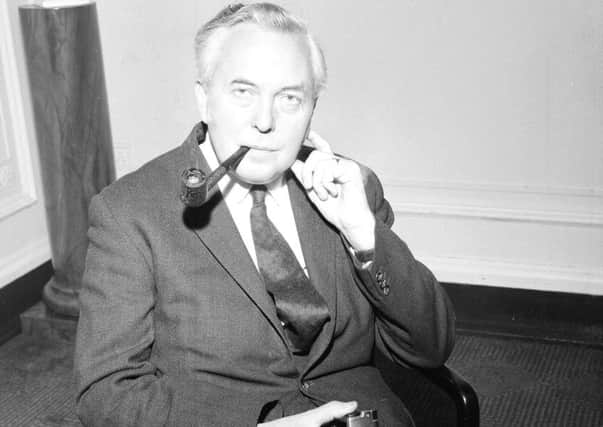Here’s hard evidence of why we need public ownership – Brian Wilson


The Open University celebrated its 50th birthday this week – one of these great institutions which would never have existed without the vision and egalitarian purpose of past Labour governments.
In terms of boldness, I would rate it alongside, let’s say, universal free broadband to ensure the rural and the poor are not disadvantaged via yet another route by excluding them from learning tools which the better-off take for granted.
Advertisement
Hide AdAdvertisement
Hide AdHarold Wilson first spoke about “the University of the Air” in Glasgow in 1963: “Investment in the nation’s education, whether vocational, technical, scientific or in the humanities, is an investment in Britain’s future which cannot be measured in terms of money or of price.” The Open University reflected that principle.
Any current politician expressing such sentiments would be sneered at on the Today programme and accused in the Tory press of seeking to bankrupt the country. What is the good of anything that cannot be measured, very precisely, in terms of money or price?
The noble idea of the state having a central role in ensuring universal access at affordable cost has been monstered relentlessly over the past 30 years. Equally, worship of the private sector as reliable providers of all such bounties is absurdly out of kilter with reality.
The embedding of these prejudices is a long-term legacy of the 1980s and will not be reversed in a single General Election campaign, a reality to which Labour’s manifesto drafters might have paid heed. That does not mean the prejudices should not be challenged.
Railways renationalising themselves
Take railways and the cries of horror when “renationalisation” is mentioned. I spent much of the 1990s opposing privatisation and fragmentation from Labour’s front-bench.
With all due modesty, just about every argument I deployed has been borne out by time. The railways have largely renationalised themselves due to the hopeless failure of the hallowed private sector. Railtrack (now Network Rail) did not last a decade before collapsing into the saving grace of the public sector, accounting for 75 per cent of the industry.
Seventeen of 20 train operators are state-owned – ie the Dutch, Italian, Spanish, German states. Subsidy has more than doubled in real terms since privatisation, paying for lawyers and accountants to haggle over myriad contracts and disputes which a fragmented railway creates.
The energy utilities still rely largely on milking infrastructure which the state bequeathed. Electricity is expensive by EU standards and the companies routinely run rings round regulators. Never mind, they must be a great success story because chief executives are paid in millions.
Advertisement
Hide AdAdvertisement
Hide AdScotland’s electricity was privatised with a view to maintaining “vertical integration” from generation to supply. SSE squeezed their loyal customer base so hard that a million left, so now they have unilaterally decided to sell the remainder to something called Ovo Energy in Bristol. Champagne all round and another million for the boss!
Mad leftists
One battle was won during the privatisation craze. Strathclyde Regional Council led a brilliant campaign which has kept Scottish Water in public ownership to this day. The result? Water in Scotland is 10 per cent cheaper than the English average, leveraged by far lower debt. So who are the efficient ones?
It always puzzles me when outcomes achievable decades ago when there was far less wealth in the country are ridiculed as fantasies of mad leftists. Why shouldn’t we build 100,000 council houses a year? Or is it less sneer-worthy to have 100,000 on waiting lists for more than a decade, while beggars proliferate and the homeless die on the streets of Glasgow?
The public sector is not denigrated in this way in other European countries, none of which are particularly left-wing. Most have far better public services than we do. So where did it all go wrong?
The role of public investment is to underpin access for all to infrastructure and services essential to a civilised society. That may not be a slogan to win elections but it is an essential truth, greatly in the interests of the many and a threat to only the very few. Unfortunately, they are the ones with money and megaphones.